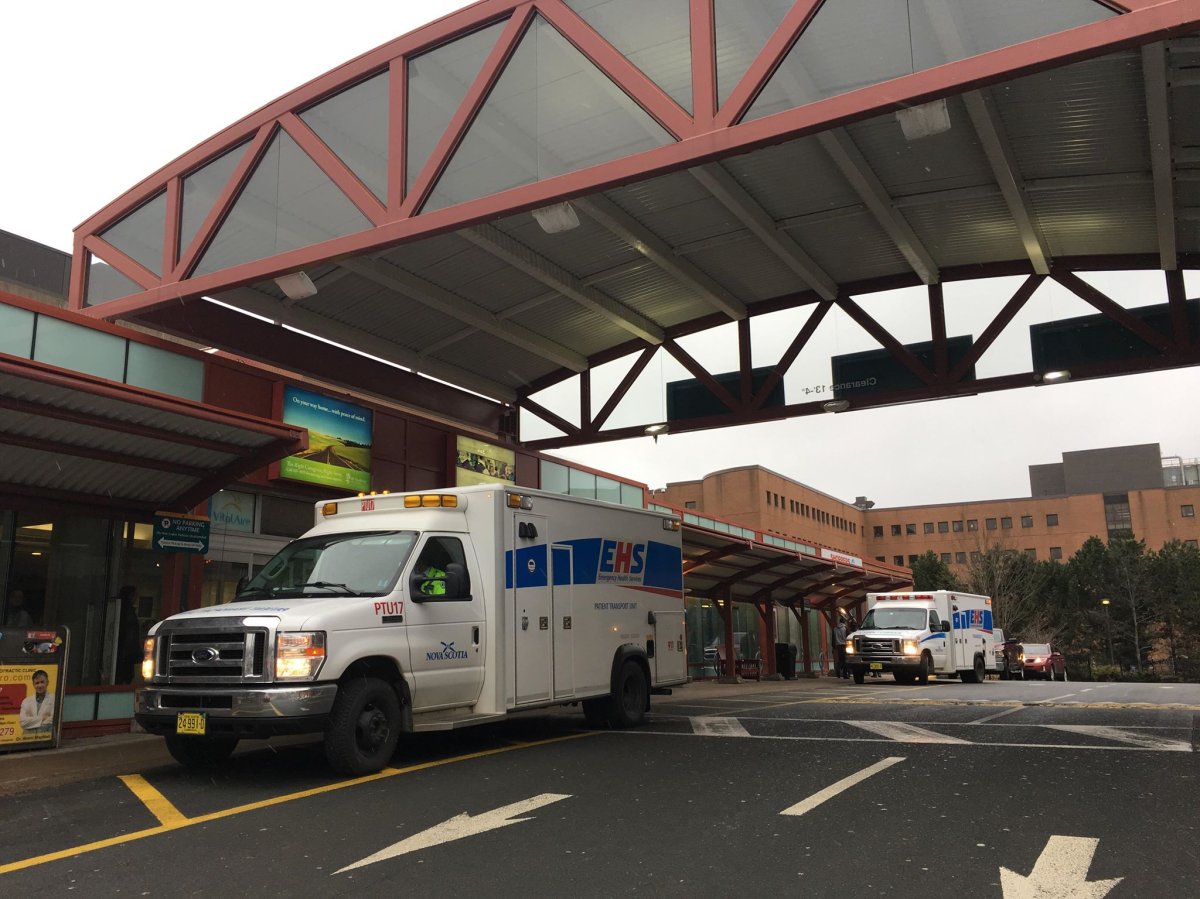As Atlantic Canadians continue to adjust their lives due to the spread of the novel coronavirus, first responders in the region are changing how they do their jobs as well.

“Our employees and our organization are working diligently to adjust to this new reality,” said assistant commissioner Larry Tremblay of the New Brunswick RCMP.
READ MORE: Halifax first responders preparing for coronavirus pandemic
For residents of Nova Scotia and New Brunswick, that new reality begins as soon as emergency calls come into the provinces’ dispatch centres.
Callers can now expect to be asked a series of questions about their health and travel.
If that screening tool leads dispatchers to believe that the caller or anyone in the household could have COVID-19, first responders are notified as they are dispatched.
Nova Scotia’s Emergency Health Services (EHS) says paramedics are informed by dispatch and through computer notifications if there is a COVID-19-possible patient.
That allows them to gear up in personal protective equipment (PPE) before they arrive.
“Paramedics are asked to have a heightened awareness about the situation,” said Remo Zaccagna, a spokesperson for EHS.

In Halifax, where the municipality’s fire service works with EHS to respond to medical emergencies, that may mean that firefighters do not respond to a call that is suspected to involve COVID-19.
“What they’re basically doing there is they’re going to let the ambulance crews deal with that call and protect firefighters from possible exposure,” said deputy chief David Meldrum of Halifax Regional Fire and Emergency (HRFE).

But it’s not always possible to have accurate information available for first responders, and in those cases, Meldrum says HRFE firefighters will administer their own screening tool when they respond to the scene.

Get weekly health news
“Things like difficulty breathing, coughing, fever, travel history.”
If they still have a reason to believe that there is COVID-19, then firefighters will gear up in protective masks and other protective gear while limiting the number of firefighters who come in contact with the patient.
More changes may come, but Meldrum says it’s important that they keep the fire service operational.
READ MORE: Halifax Regional Police to close 2 of its service locations
The region’s police services have a similar mandate.
The RCMP, the Saint John Police Force and the Halifax Regional Police (HRP) say they have changed policies around how their officers will respond to calls.
Just like Halifax Fire, police officers with both departments will be provided with any information that dispatchers have regarding the COVID-19 status of the caller.
Const. John MacLeod, a spokesperson for the HRP, said that although it is hard to “always have all the information at the front end” they’re working to ensure frontline officers are equipped with all the information they need.
“The instruction is to wear PPE when arriving at the scene of a call for service for any calls involving individuals suspected or known to be symptomatic. PPE includes masks, gloves and eyewear,” said MacLeod in an email on Wednesday.

The RCMP have a similair directive.
Tremblay of the New Brunswick RCMP said that residents shouldn’t be frightened if officers show up in “personal protective equipment.”
“This is for the safety of the public and our police officers,” he said.
Saint John police say that both officers and civilians remain on the job during this situation and that front line workers have been provided PPE.
Restricting access to facilities
Every organization that Global News spoke to for this story confirmed that they have now restricted public access to their facilities.
In New Brunswick, that means front counter service is being scaled back, if not canceled altogether.
Fingerprinting, criminal records checks and vulnerable sector checks will not be available until further notice.

Halifax police have done the same, shutting down their facilities at the Halifax Shopping Centre and their Spryfield Community Office.
Halifax firefighters have restricted access to their stations and the town halls connected to certain stations.
Families of firefighters — which are normally allowed to visit — have been barred as a result of efforts to contain the novel coronavirus.
Questions about COVID-19? Here are some things you need to know:
Symptoms can include fever, cough and difficulty breathing – very similar to a cold or flu. Some people can develop a more severe illness. People most at risk of this include older adults and people with severe chronic medical conditions like heart, lung or kidney disease.
To prevent the virus from spreading, experts recommend social distancing, frequent handwashing and coughing into your sleeve. And if you get sick, stay at home.
For full COVID-19 coverage from Global News, click here.
- After controversial directive, Quebec now says anglophones have right to English health services
- Something’s fishy: 1 in 5 seafood products are mislabelled, study finds
- Pfizer’s updated COVID-19 vaccine approved by Health Canada
- Why non-alcoholic beer is gaining steam at Oktoberfest: ‘Nobody will judge you’









Comments